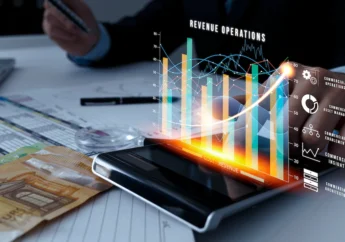Answering the Burning Question: What will Happen to Your Credit Score if yYou do Not Manage Your Debt Wisely?
by Ankita Tripathy Finance Published on: 18 November 2024 Last Updated on: 07 May 2025
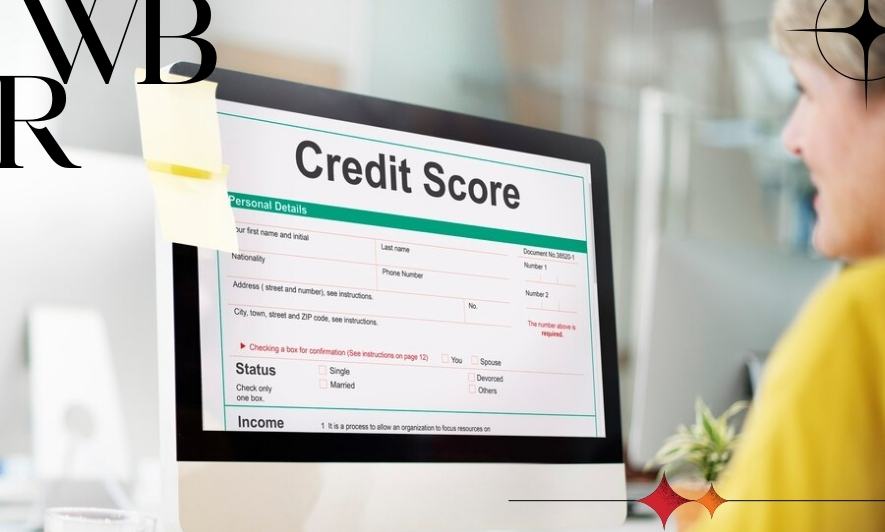
What will happen to your credit score if you do not manage your debt wisely? Well, the straight answer is that you will end up in a financial hole making things very difficult for you.
Moreover, you can run into financial ruin that can affect how financial institutions see you. Therefore, a credit score is not just a number on a sheet of paper. It has a profound impact on the way you do your financial dealings.
What is A Credit Score?
Modern-day consumerism has opened the gates of extravagance to the general masses through easy-to-pay loans. These loans are meant to help the middle class buy things they generally cannot afford. However, now they can with the help of banks.
However, with debt comes credit score as well. Both of these have become integral parts of the discussion. However, what is a credit score? Well, a credit score is a mathematical formula that can help lenders understand your creditworthiness, or the ability to close loans.
Credit score is a three digit number that ranges between 300 to 850. Here is a small rundown of the credit score ranking in general terms:
- 800 to 850: Excellent
- 740 to 799: Very Good
- 670 to 739: Good
- 580 to 669: Fair
- 300 to 579: Poor
Therefore, you need to keep your credit score between a range of 739 to 850 to get loans according to your wishes and wants.
Impact of Poor Debt Management
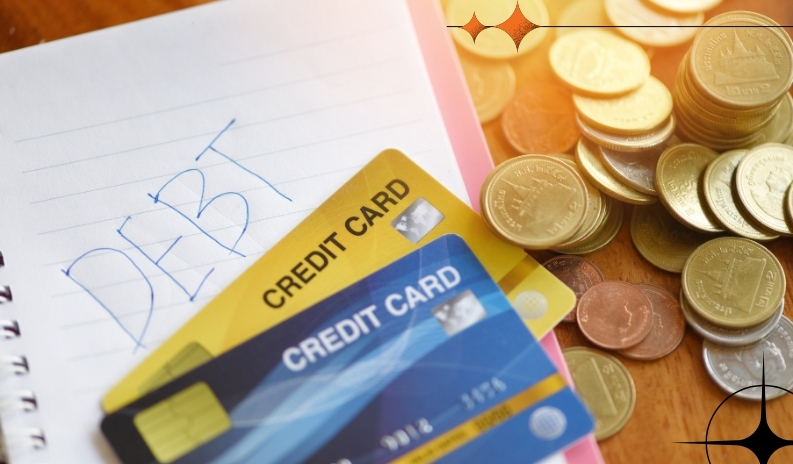
What will happen to your credit score if you do not manage your debt wisely? Poor debt management is one of the biggest financial mistakes you can commit. It can not only affect your credit score. But it can also hamper your social name. Therefore, you always need to ensure that you are on top of your game regarding debt management.
Debt mismanagement usually refers to falling behind on payments, missing deadlines, and failing to pay. These three actions contribute to poor debt management. Per FICO Simulated data, missing payment by 30 days can knock off at least 17 to 37 points from your credit score.
This rate only keeps adding up. Subsequently, many people consider taking out multiple loans at the same time. This sets a terrible precedent. This is a huge red flag for banks as they may assume that you are overburdened with debt and could cave in at any time.
Common Debt Management Mistakes
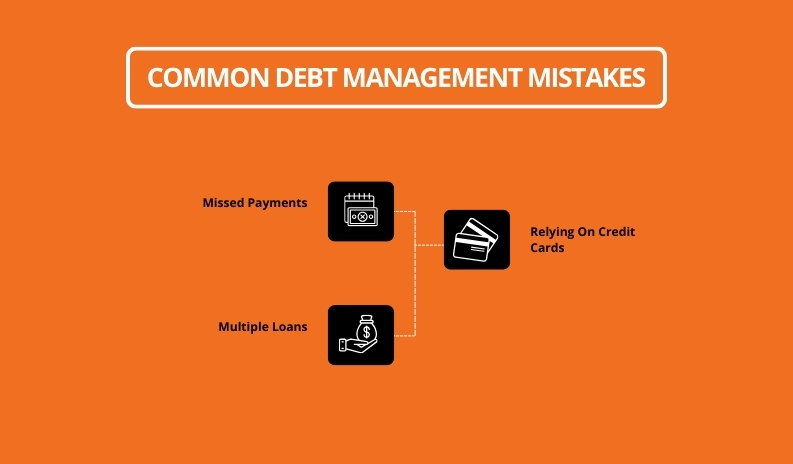
Mistakes are meant to happen as you grow financially. You will lose out on some points or miss payments. These are all part of the process and must be addressed accordingly. However, knowing a few pointers to help you get out of a bad debt slump will not hurt.
Then again, always remember that debt mismanagement comes in various shapes and sizes. Therefore, be very cautious about managing your debts effectively. Here is a small rundown of all the things that could go wrong plausibly.
Missed Payments
The most obvious and prominent debt mismanagement is missing payments. Late payments are like double-edged swords. Missing payments not only affects your credit score. But it also slaps you with late fees. Therefore, be very careful regarding late payments.
As per FICO guidelines, missing a 30-day mark can result in a loss of approximately 40 credit points. Now, if this continues, the points keep adding up to become herculean.
Relying on Credit Cards
People often think that having a high credit balance is nothing. However, a high credit card balance means a high credit-usage ratio. Therefore, this can be detrimental in the long run. Your primary aim should be to stay out of debt as much as possible.
Therefore, leaning too much on credit card currency can be a huge problem. Credit card bills can pile up and creep up on you without forewarning. Which can deter or stop you from boosting your credit score.
Multiple Loans
Another common problem that people need help with is the problem of juggling multiple loans at the same time. Various loans are alarming as they signal to financial institutions that you are juggling debts with little income.
This might be fine if you are on point with the payment. However, it can put you in a vicious cycle, resulting in financial issues. Therefore, only manage one loan at a time. Refrain from overstretching yourself.
Lower Credit Score Consequences
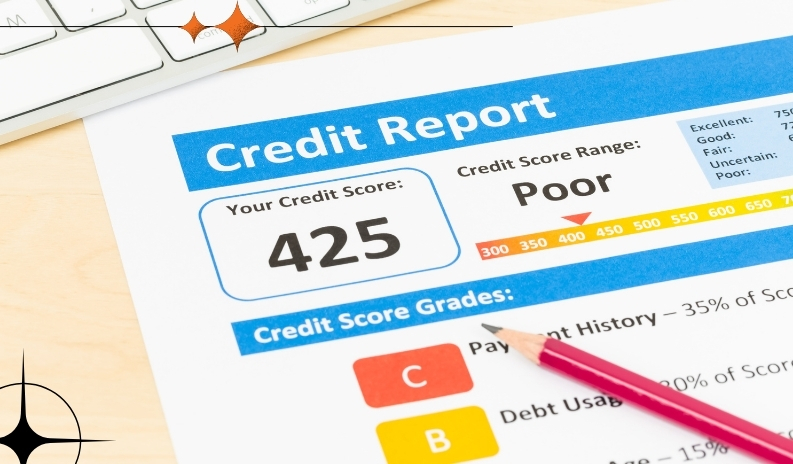
Managing debt is like juggling with knives. Therefore, you need to be a step ahead at all times. You cannot go lackadaisical in any way whatsoever. You must have a clear and defined plan of action when it comes to wealth or debt management.
However, what happens when your credit score suffers? You never know what tomorrow holds. Therefore, having an idea about the consequences of a low credit score will always help you understand what it is that you need to do.
Higher Interest Rates
The foremost consequence of a low credit score is a higher rate of interest. Think of it like this: you are planning on buying a new car with financial aid from a bank. However, you need to pay a higher rate of interest because you have a low credit score.
In other words, you are paying a higher rate of interest compared to a person with a better credit score. This is just the bank’s way of recovering the money it owes you as soon as possible using interest.
Loan Dismissal
A low credit score is a substantial financial red flag for banks. In other words, banks would avoid you in case of lending money. In fact, some banks would outrightly deny engaging with you. Therefore, a low credit score due to debt mismanagement will make you a financial liability.
Hence, you might encounter higher levels of loan dismissal. Therefore, a low credit score can compel you to have lower chances of seeking financial aid. This can be a problem for someone who relies on loans for milestone purchases.
How to Understand Good Debt vs Bad Debt?

Debts are nuanced subjects that require understanding. Well, we will only give you a partial class on what are the components of a debt. Howevevr, we will tell you that debts come in two primary categories. These are called good debts and bad debts.
Having a clear understanding of these two variations can actually help you understand “what will happen to your credit score if you do not manage your debt wisely.” Here is a primary rundown of how you can identify between a lousy debt and a good debt.
- Bad Debt: Bad debts do not help you build wealth. Instead, they can land you in financial ruin. They are financial liabilities that need to be kept under check.
- Good Debt: These help you in building wealth and assets. Good debts usually consist of procuring assets that are growing with time and space. Therefore, they will give you a higher return in the long run.
Honestly speaking, no debt is good or bad inherently. Your general income, rate of return, and affordability make a debt good or bad. Debt should always be at most 10% of your monthly income.
Exceeding this bracket can land you in a soup. Therefore, sit with your finances and assess your debt rate. Follow this thumb rule, and you will be good to go.
Effective Debt Management Techniques
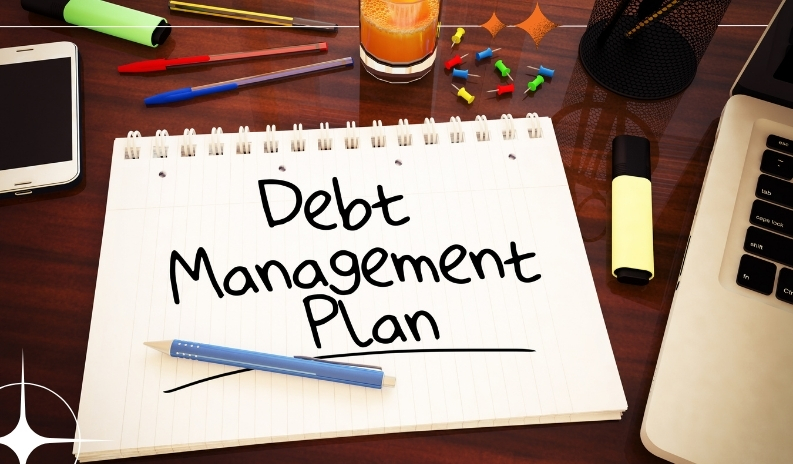
We have covered all the points that need to be covered about debt management. However, having knowledge is something, and having clarity is something else altogether. Therefore, in this penultimate section, we will be looking at the means that can help you manage your wealth effectively.
But before we begin, you must understand that taking professional help from a firm is a better approach compared to a DIY mindset. Therefore, you should take your time and get in touch with an excellent professional debt management company.
This will help you manage your debt in a more effective and efficient manner. Here we go!
Create A Plan: Start your journey by creating a plan of action. You have all the necessary figures you need to plan things. Therefore, start ahead and move accordingly.
Set Up Autopay: Automating your debt payments will not only take your mind off the debt that you are paying. In fact, they also add a sense of schedule to your debt payments.
Set Alarms & Reminders: Connect your mobile devices with the debt system. In other words, you should be getting notifications and SMS alerts. This will allow you to keep a watchful eye on your debt.
Judious Credit Utilization: If you are in debt, your priority should be to keep your overall expenditure down. This will allow you to keep track of your finances and pay off debts quickly.
Consider Debt Consolidation: Finally, if you have multiple debts, you can streamline the process into one single debt as debt consolidation. This brings the interest rate down and makes debt management more streamlined.
The Final Thought
With that, you have reached the final leg of our article, trying to answer a fundamental question: what will happen to your credit score if you do not manage your debt wisely? Therefore, if you are under some kind of debt, you need to start following this article religiously.
Leave us a like if you liked this piece of content and want to explore more such content. Till then, have a great day ahead and manage your wealth better.
Read More:
































































































